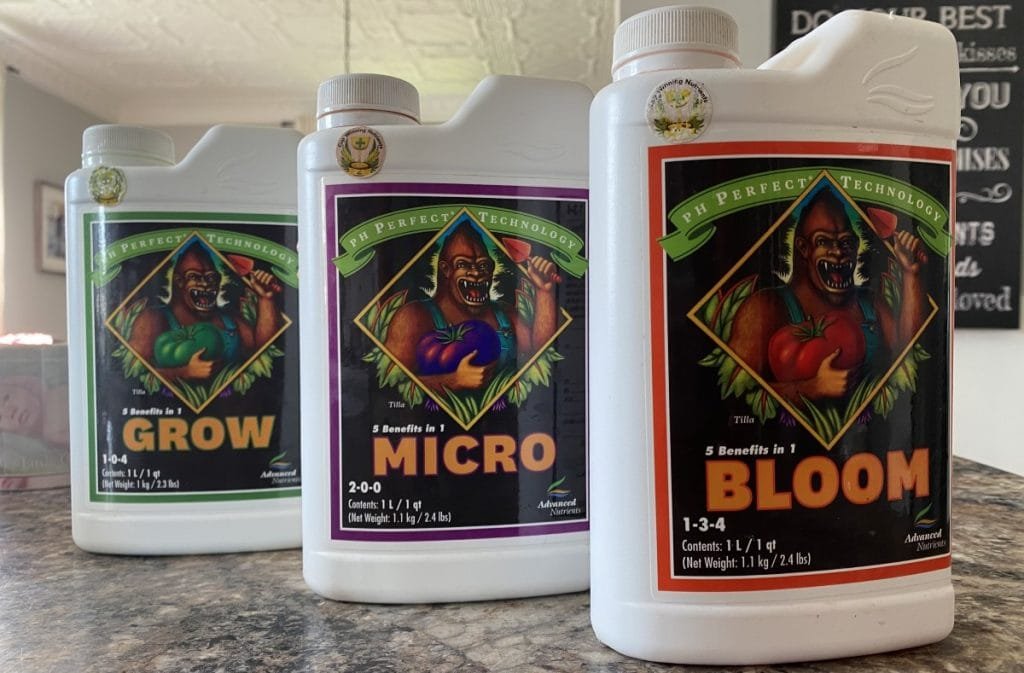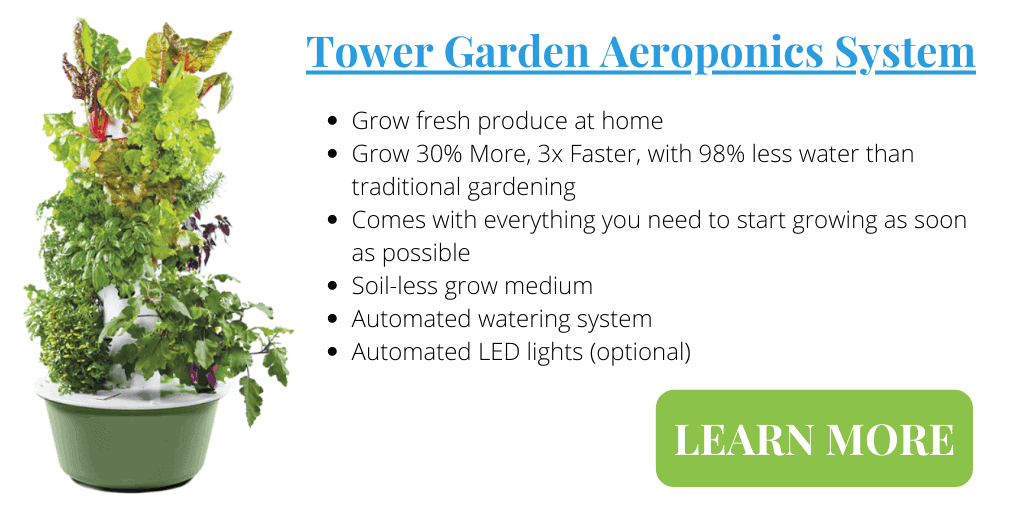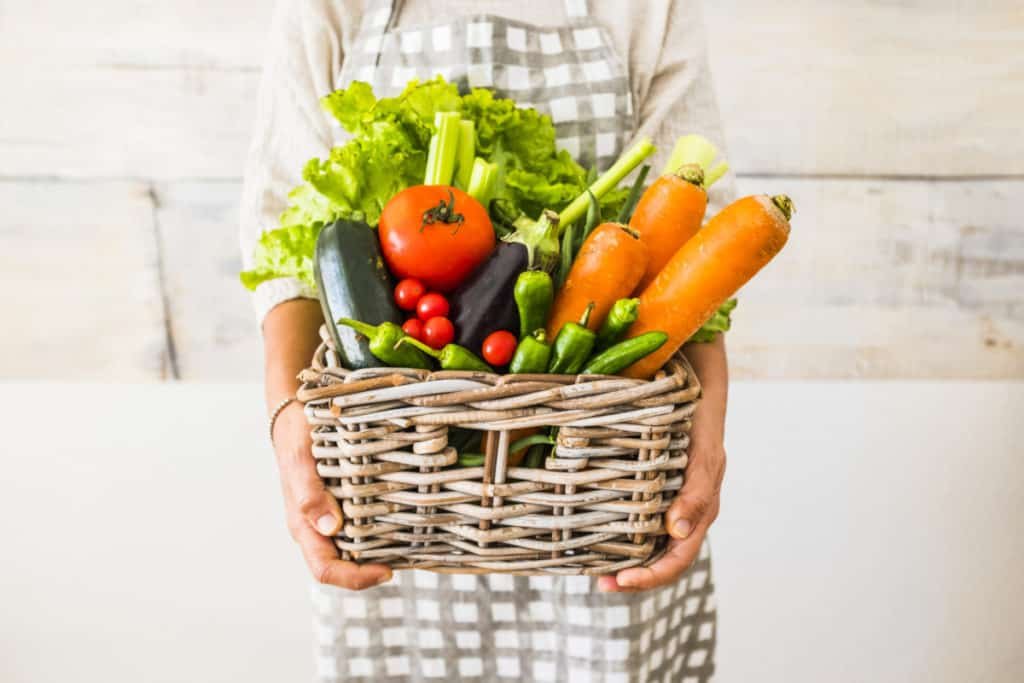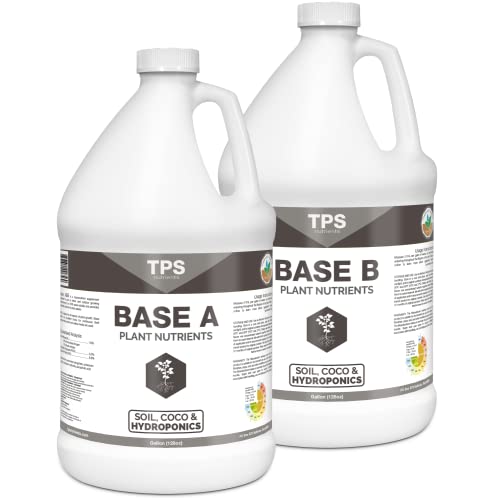People who investigate hydroponics are usually looking for a healthier alternative way to produce their food. As a result, the question of whether hydroponics is an organic method or not is a logical progression. For many people, eating organically grown produce is a life choice, and for others, it is necessary for good health. Are all hydroponics nutrients organic, and if not, how do you change your hydroponic growing to be organic?
Not all hydroponics are organic. Conventional hydroponic nutrients are considered synthetic or chemical-based due to the processes used to extract the nutrients from base materials. Organic nutrients are available for hydroponics systems but are generally more expensive and not as easy to use.
Some people are under the misconception that hydroponic growing is organic because it is in a controlled environment, and the grower has control over the system. However, all hydroponic nutrient solutions are not organic. Many of the hydroponic nutrients on the market are synthetically produced rather than using all-natural ingredients and processes. Organic nutrients are available for hydroponic growers, but it is not only the nutrient solution that makes your growing organic.

Are Organic Hydroponic Nutrients Safe?
Organic nutrients for hydroponic systems are produced using natural methods or organic material decay to release nutrients into a solution in a form that growing plants can use. The production of organic nutrients more closely mimics the natural decomposition of organic material, releasing nutrients into the soil.
Organic nutrients are safe to use in your hydroponic growing system to produce food crops. Organic hydroponic nutrients are manufactured using less chemical and synthetic processes to produce the necessary nutrients than conventional hydroponic nutrients.
Organic hydroponic nutrients can be made from various base materials, including vermicompost leachate or worm tea, which is a by-product of a worm farm. Studies showing good results were undertaken in Japan, using a fish-based fertilizer and organic waste by-products from food production.
A similar study in Thailand used a combination of waste molasses, distillery grain waste, and sugar cane to produce nutrients that showed production results equivalent to those of synthetic nutrients.
All these products would have ended up as waste products in landfills, which is one way that organic nutrients can contribute to the overall wellbeing of the planet.
Using natural fermentation processes rather than chemicals, the organic nutrients produced are certainly a better choice for growing your hydroponic plants. The crops that are produced using organic nutrients are safe to eat and provide more health benefits than conventional nutrients.
- COMPLETE PLANT GROWTH FERTILIZER: TPS Nutrients BASE AB SET contains everything necessary for a...
- SAFE ON ALL PLANTS: Should be used with every watering from cutting to harvest.
- COMPATIBLE WITH OTHER FERTILIZERS: TPS BASE AB is fully compatible in solution with other TPS...
Is Hydroponic Growing Organic?
Hydroponic growing is a system that many people are tapping into to grow their own vegetable produce. For most people, their reasoning for this s to have a healthier option than the vegetables and herbs that are grown commercially and available on the supermarket shelves.
Growing plants hydroponically does not automatically equate to organic growing methods. Hydroponically grown food is generally better for you because it has more nutritive value than mass produce products, and you can choose to grow from non-GMO seeds.
Even though most hydroponically grown food is better than the supermarket shelf products, it is not necessarily organic. If you want your hydroponic growing system to be the best that it can be, you need to implement organic growing principles in your operation.
What Is Organic Hydroponics?
In order to define your hydroponic growing system as organic, you need to follow growing principles based on organic agriculture principles and concepts.
Organic hydroponics means adhering to the organic growing principles of using only natural nutrients, the use of organic pest and disease control measures. The rules for organic crops do not stop there but also go right back to the beginning of your choice of seeds.
Using Organic Seeds
To be truly organic, you should start with the seeds you are using and how they are produced. The modern commercial farming trend is to use genetically modified organisms or GMO seeds that have been engineered to be pest-resistant, disease-resistant, and give a greater yield.
These may sound like great attributes to have in your seeds, but genetic engineering comes at a cost. The crops produced from the seeds can have a lower nutritive value and can negatively impact the health of the consumer.
Many of the reasons for using GMO seeds are not relevant in the hydroponic growing method. Because hydroponics is a controlled growing method, usually elevated off the ground, the usual pests are easier to control, and the plants are less susceptible to disease. Hydroponics, on average, also produces a higher crop yield because the plants have easy access to nutrients and do not need to compete with other plants in the ground.
Grow In Food Safe Containers
Because hydroponics does not use soil, the growing container must be taken into account when considering growing plants organically using these methods. Plastics such as PVC are not suitable for growing plants for consumption due to the chemicals that can leach into the water and, thus, be absorbed by the plants.
Containers used for hydroponic growing of food crops should always be made from materials that are approved for the safe growing of food, such as food-safe plastics or similar materials.
Growing food my Tower Garden vertical aeroponic system is a worry free way for me to grow healthy food. The food grade UV stabilized reservoir and growing sections are safe for indoor and outdoor use making aeroponic growing simple to do at home.

Organic Pest And Disease Control
The definition of organic farming, be it hydroponically or via any other method, would therefore include the use of all-natural fertilizers and nutrients, organically approved pesticides and disease control methods, and using non-GMO seeds for your crops.
Because hydroponic growing has fewer problems with pests and diseases, the focus around organic hydroponics is on the use of organic nutrients to feed the plants.
Organic Is More Than A Label
In many countries, hydroponically grown food cannot be labeled as organic because the growing method does not adhere to the organic principle of improving the soil or contributing to soil health.
There is substantial controversy around using the term “organic” for hydroponically grown products since the plants are not grown in the soil. The premise of the word “organic” implies that the growing method is beneficial to the planet, and this includes improving the soil that the plants are grown in, thus improving the natural ecosystem as a whole. Hydroponics essentially does not do this because it is a soil-less growing system.
In 2017, the USA was the first country to officially recognize hydroponically grown food as organic and allow it to be labeled as such if it was grown using organic principles. This decision has been met with opposition by organic farmers who have put the time and effort into establishing organic growing methods and improving the natural environment as a side-effect of the methods they use to farm
Fortunately, if you grow your own food hydroponically, you are not subject to the organic labeling regulations, and as long as you follow the basic organic growing methods, you will enjoy healthier, more nutritious food grown in your own hydroponic system.
Growing organic hydroponic food as a commercial venture may be a minefield that you want to stay away from and simply label your product as “grown hydroponically using eco-friendly methods.” Maybe you can invent your own terminology that will be the next buzzword for organic hydroponics!
What Are The Benefits Of Organic Hydroponics?
Growing your own hydroponic crops will immediately offer benefits due to the controlled environment, but growing using organic methods will further enhance the value your get from your hydroponic crops.
Growing organically in hydroponics offers the following benefits.
- Fewer pesticides. Hydroponic growing, by its very nature, limits the number of pests that can attack the plants. If you still need to use pest control methods, organic pest control generally works very well in hydroponic systems.
- Healthier plants. Plants in hydroponic systems are healthier because they do not compete for nutrients with other plants. The plants grow stronger in hydroponic systems, which better enables the plants to fight off pests and disease.
- More nutritious plants. Plants grown in hydroponics and with organic methods produce more nutrient-rich crops than commercially grown foods.
- Higher antioxidant levels. Plants grown with organic methods have higher antioxidant levels, which are important for our overall health by improving cell structure and repair and preventing disease.
- Recycling waste. Organic hydroponic fertilizers are good for the environment because they utilize organic waste that would otherwise end up in a landfill, producing greenhouse gasses.
Organic hydroponic growing is certainly worth pursuing from the benefits that it offers to your health, but it does come with some challenges compared to standard hydroponic growing.
What Are The Challenges Of Organic Hydroponic Growing?
As with anything that is worthwhile doing, organic hydroponic growing is not without its challenges. In the early experimentation with organic nutrients, a number of challenges were encountered.
It was found that plants grown with organic nutrients in hydroponics grew at a slower rate, did not grow as big, and produced a lower crop yield.
Early organic hydroponic nutrients also seemed to create larger fluctuation in the pH value of the nutrient solution, which resulted in more care and monitoring of the system when using organic nutrients.
Organic hydroponic nutrients not only require more knowledge and expertise to use but were also significantly more expensive than conventional hydroponic nutrients.
The early tests on organic nutrients were done using lettuce as the food crop, and as we know, different plants react differently to the hydroponic environment, so many of the experimental findings were a generalization.
Fortunately, recent advances in the production of organic nutrients for hydroponics have resulted in organic nutrients that produce yields and growth comparable to that of conventional hydroponic nutrients.
New generation organic nutrients are also more pH stable than the early versions of these nutrients were. Modern organic hydroponic nutrients have also come down in price as production processes improved and were better understood.

Synthetic Or Organic Hydroponic Nutrients?
Most people start out in hydroponics by using conventional nutrients, many of which are created using synthetic materials.
Even though the term “synthetic” is used, the minerals and vitamins that go into hydroponic nutrients are not manufactured synthetically since all these minerals occur naturally. The synthetic aspect comes into how the minerals are isolated from their base ingredients and then combined to make the nutrients.
Many of the processes required to isolate the necessary ingredients for combining hydroponic nutrients require the use of chemicals as part of the process. In the production of organic nutrients, the use of chemicals is restricted, and natural processes are employed to extract the nutrients from the base materials.
Most people start off using conventional hydroponic nutrients because they are more readily available, cheaper, and easier to use. However, once growers have built up a level of experience with this growing method, many turn to using organic nutrients for the additional health benefits of the final product.
Are Conventional Hydroponic Nutrients Safe?
When prospective hydroponic growers realize that the conventional nutrients offered by most manufacturers are produced synthetically, they become concerned about the safety of using these nutrients.
Conventional hydroponic nutrients are safe to use for growing plants in your system, and it is safe to eat food plants that are grown using these nutrients. Conventional nutrients offer benefits over soil growing methods, but organic nutrients further enhance the health benefits of hydroponic plants.
Hydroponic growing using conventional or synthetic nutrients has proven to show faster, larger growth in plants and higher crop yields. Growing your own food this way gives you peace of mind about the method of growing and the use of any pest control methods. This is immediately a healthier choice than commercially grown food.
Hydroponic growing is also a means for people to grow their own food by making use of spaces where it is difficult to grow using soil, such as balconies and rooftops.
Moving to organic hydroponic nutrients would be the logical next step to further improve the quality of the food that you produce in your hydroponic system.
Conclusion
Conventional hydroponic nutrients are not organic since they are not necessarily produced from organic matter, and the process to create them can involve chemicals. This is not to say that these nutrients are bad or detrimental if you consume plants grown in these nutrients.
Organic hydroponic nutrients are available for use in growing systems, and these types of nutrients are made for organic material that has undergone a process that does not involve chemicals to produce the nutrients.
Organic nutrients use organic material as the base products and the process to extract the nutrients is closer to the natural processes of plant decay that would traditionally restore nutrients to the soil. This limits the use of non-natural materials in the process, which ensures that the resultant nutrient is closer to the natural nutrients the plant would be able to access in the soil.
Organic nutrients are more difficult to use, particularly if you are used to the convenience of conventional nutrients. If you decide to change to organic nutrients, you will need to follow the manufacturer’s instructions very carefully to have success with these nutrients. You will need to monitor the system more closely, particularly the pH levels, to make sure the pH of the solution remains within range.
While organic hydroponic nutrients may be a little more complex and a little more work, the resulting high-quality food that you can grow in your own home is well worth the effort!

